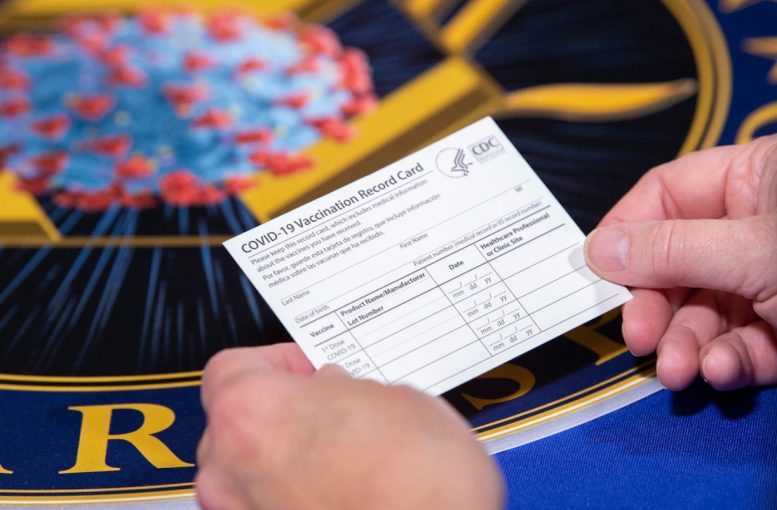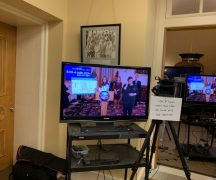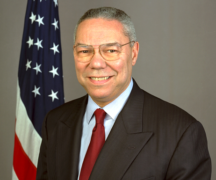In a move that caught even supportive lawmakers by surprise, the Ohio House on Thursday quickly amended a sweeping, anti-vaccination provision into an unrelated piece of legislation and passed it.
The legislation prohibits a public or private entity from:
- Requiring an individual to receive a vaccine that has not obtained full approval through the U.S. Food and Drug Administration.
- Requiring unvaccinated people to abide by any precautions not required of vaccinated people.
The House passed the legislation after more than 600,000 Americans — including more than 20,000 Ohioans — have died of COVID-19.
Fifty-seven Republicans voted for the amendment. Three Republicans — Reps. Rick Carfagna, Mark Fraizer and Andrea White — joined Democrats in opposition.
The amendment doesn’t specifically address COVID-19 or the pandemic. However, it directly undercuts guidance from the CDC, which advises unvaccinated Americans to wear masks.
Three COVID-19 vaccines are currently available for use in the U.S. under an Emergency Use Authorization. While this is short of full approval, the three vaccines underwent large-scale clinical trials with tens of thousands of recipients demonstrating the vaccines’ powerful protective effects and safety.

Researchers and health officials who analyzed the data have found the vaccines to be safe and powerful tools to reduce the risk of symptomatic infection. They are also under ongoing federal safety monitoring.
The amendment likely poses a major threat to hospitals or nursing homes, which host medically fragile patients, as it takes away their ability to order staff to either get vaccinated or take other mitigation measures like masks or social distancing.
The concerns aren’t hypothetical. In January, an unvaccinated health care worker walked into a Kentucky nursing home. An outbreak ensued — 26 residents (18 of whom were fully vaccinated) and 20 caregivers (four of whom were vaccinated) were infected, according to a CDC report on the outbreak.
“Vaccinations over the years have saved millions of lives,” said Delaware County Public Health District Commissioner Shelia Hiddleson, who sits on the board of the Association of Ohio Health Commissioners.
“To put forth any type of amendment that blanketly affects all vaccinations would be irresponsible.”
Lawmakers folded the amendment into Senate Bill 111, which allocates $422 million in federal relief dollars. The amendment was proposed by state Rep. Ron Ferguson, R-Wintersville.
He said the legislation is about personal freedoms. He brushed aside questions about allowing unvaccinated people near nursing home residents or hospital patients.
“I don’t think that any problem is bigger than forcing upon free Americans and free individuals something against their will,” he said. “That’s the only big problem I see at hand.”
Rebuke follows amendment’s passage
Its swift passage came as a surprise to many, even House Health Chairman Scott Lipps, R-Franklin, whose committee had held repeated hearings on a similar, yet broader, anti-vaccination proposal.
Earlier this month, one of those hearings entailed a known anti-vaccination activist claiming the vaccines make you magnetic, they “interface” with 5G cell towers, and other outlandish and inaccurate statements about vaccination.
Lipps said that bill, in its current form, doesn’t have the votes to pass. Although Lipps has repeatedly stated his support of “vaccine freedom,” he said he was “disappointed” to see legislation of this magnitude passed without a single committee hearing.
“Why are we going through the committee process and spending hours and hours reviewing hundreds of witness testimonies if you just want to go to the floor and punch your bill in as a floor amendment,” he questioned.
“I’m disappointed that we no longer follow a process.”
Rep. Beth Liston, D-Columbus, who is also a physician, issued a statement accusing Republicans of pushing laws that “pander to extreme anti-vaccination groups” at the expense of people’s lives.
“This amendment undermines public trust in the COVID vaccines,” she said. “It prohibits common sense public health accommodations like hospitals asking non-vaccinated employees to work with less vulnerable patients, or businesses making social distancing accommodations that protect unvaccinated employees.”

Photo courtesy the Ohio Channel.
Dan Tierney, a spokesman for Gov. Mike DeWine, said the governor would veto the proposal if it makes it to his desk.
“The governor has made clear his position on bills that discourage vaccination or would affect the right of an employer to keep their employees and customers safe and healthy,” he said.
Various health care associations responded coldly to the proposal.
John Palmer, a spokesman for the Ohio Hospital Association, said in a statement after passage the hospitals are opposed to the amendment and are working with members and lawmakers to “reach a workable compromise.”
The Ohio Association of Health Plans, which represents health insurers, said in a statement that members’ plans are pro-vaccine, and businesses should have the right to make their own decisions about how to protect the health of their employees.
The Ohio Health Care Association, which represents private nursing homes and long term care facilities, declined comment. The association opposed a similar legislative proposal earlier this year.
In an interview, House Speaker Bob Cupp, R-Lima, said places like nursing homes don’t need different protocols for unvaccinated people because diagnostic testing is available.
“They do testing, I think there’s mandated testing twice a week or so,” he said. “They are monitoring that situation.”
When asked why the House would pass a law that effectively outlaws CDC’s infection control protocols, Cupp said institutions could impose any mitigation measures so long as they do it on all people, regardless of immunization status.
“It’s only whether you’re going to discriminate against vaccinated or unvaccinated,” he said. “It certainly could require everybody to wear a mask.”
The bill now goes back to the Senate, which can either concur with the House changes or decline. If they decline, the two chambers will need to agree on a final version to send to DeWine. A Senate spokesman could not be reached for comment.
***
Also from Ohio Capital Journal:
Ohio House approves transgender sports ban for women’s athletics; Senate rejects the change
Ohio lawmakers approved a bill Thursday to allow college athletes to profit off their name, image and likeness, with Republicans adding an unrelated provision to ban transgender girls from competing in women’s high school and college sports.
The last-minute addition of a provision dealing with the transgender sports ban set off a chaotic debate on the Ohio House of Representatives floor. Republican lawmakers defended the amendment as necessary to preserve the integrity and fairness of women’s athletics. Democrats condemned the effort as anti-LGBTQ+ and as being rushed through without a full legislative process.
The House provision was added to an otherwise bipartisan bill about college athletics which recently passed the Ohio Senate in a unanimous vote.
The House vote was 57-36, with one Republican joining the full Democratic caucus in voting against.
Within hours, the Senate rejected the changes and worked to again pass legislation dealing with athletes benefiting from their personal “name, image and likeness” — without the transgender athletes amendment. Senators added this “NIL” language to an unrelated bill and included in a section dealing with the legalization of sports gambling. READ MORE
State Board of Ed members support banning racial focus in Ohio schools
Present and former members of the Ohio State Board of Education are opposed to the use of a racial lens when teaching education in the state.
Dr. Jenny Shafer Kilgore, Kirsten Hill and Lisa Woods all spoke during multiple hours of testimony at a recent hearing in support of a bill that would eliminate the use of “divisive” subjects that may “promote” certain ideologies over others.
House Bill 327 “would allow teachers to teach the subject without the distractions of critical race theory… they would have more opportunity to focus on the subject matter,” said Kilgore, who teaches undergraduate education at Miami University and graduate education students at Indiana Wesleyan, according to her profile for the Board of Education website.
Kilgore said students should be taught “an accurate account of history in order to avoid destructive actions of the past and pursue a positive future.”
“Educators are compelled to slight time allocated to teaching academics in order to instruct on values such as social justice, altruism, environmental awareness, just to name a few, historically learned at home, in church and community, now delegated to the classroom,” Kilgore told the House State and Local Government Committee. READ MORE
It’s raining ‘forever chemicals’ in Cleveland. What’s being done to make Ohio water safe?
In April of this year, scientists decided to measure the healthiness of the rainwater falling over the Midwest. One of the places they measured was Cleveland, Ohio.
The rain that fell on Cleveland this spring contained a surprisingly high amount of toxic “forever chemicals” known as PFAS, according to scientists at the Integrated Atmospheric Deposition Network, a long-term Great Lakes monitoring program jointly funded by the U.S. Environmental Protection Agency and Canada. Besides Cleveland, the other Great Lakes’ sites measured were Chicago, Sturgeon Point, N.Y., Sleeping Bear Dunes in Michigan’s northern Lower Peninsula and Eagle Harbor in the Upper Peninsula.
“You can actually say it’s raining PFAS at this point,” said Marta Venier, an environmental chemist at Indiana University. “[The PFAS’] accumulate. Once they are out there, they really stay out there. All of this is to say it’s not an immediate concern for a person, but it is a concern long-term for the environment because they keep raining out.” READ MORE





